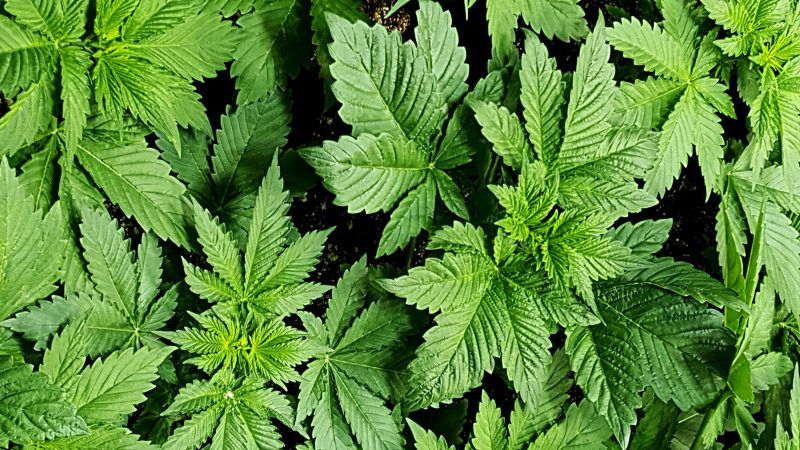Illinois Survey That Supposedly Shows Support for Legalizing Marijuana Is 'Dwindling' Actually Shows It Is Rising
An anti-pot group's own polling shows that support for legalization is up by 78 percent since November 2017.

A recent poll commissioned by the anti-pot group Smart Approaches to Marijuana supposedly shows that support for legalizing pot is slipping in Illinois, where Gov. J.B. Pritzker and his allies are hoping to pass a legalization bill by the end of the month. The poll actually indicates that support for legalization is on the rise. It also shows that the way people respond to questions on this subject depends on how they are framed.
In March a poll by the Paul Simon Public Policy Institute at Southern Illinois University, using a sample of 1,000 registered voters, found that 66 percent favored "the legalization of recreational marijuana if taxed and regulated like alcohol." That result is strikingly similar to what Gallup found in a national poll last fall, when it reported that 66 percent of Americans thought "the use of marijuana should be made legal."
The new survey, commissioned by Smart Approaches to Marijuana (SAM) and conducted last week by Mason-Dixon Polling & Strategy based on a sample of 625 registered voters, found that 41 percent supported "legalizing commercial production, use and sale of marijuana for recreational use." That's up from 23 percent in a similar SAM-sponsored survey conducted in November 2017. But the Chicago Sun-Times compared the Mason-Dixon survey to the Simon Poll and reported that "support for legal pot" is "thinning." WSIL, an ABC station in Southern Illinois, likewise reported that "support is dwindling for recreational marijuana."
That conclusion seems suspect, given the difference in wording between the two polls. Here is how SAM asked about legalization:
Currently, possessing 10 grams of marijuana—enough for about 30 joints—is not a crime in Illinois. Instead, it is a civil violation like a traffic ticket. Many people call this policy "decriminalization." Medical marijuana use is also legal in Illinois. Knowing that personal marijuana possession is already decriminalized in Illinois, which one of the following marijuana policies do you prefer:
- Keep the current policy of decriminalization and medical marijuana
- Keep the current policy of decriminalization and medical marijuana but also allow for past misdemeanor marijuana convictions to be expunged
- Change the current policy of decriminalization by legalizing commercial production, use and sale of marijuana for recreational use
- Make all marijuana use illegal
Given those choices, 31 percent of respondents favored the current policy, down from 47 percent in November 2017, while 41 percent preferred full legalization, up from 23 percent in the previous poll. Another 16 percent wanted to keep the current policy while expunging marijuana misdemeanors (an option that was not included in the earlier poll). Only 9 percent thought marijuana should be completely illegal, down from 18 percent in the earlier survey, while 3 percent weren't sure, down from 8 percent in 2017.
SAM argues that the Simon Poll presents a "false dichotomy" and that offering more than two options shows support for legalizing marijuana is lower than commonly thought. That may or may not be true. One could also argue that the Simon Poll's comparison to alcohol, while it apparently makes legalization more palatable, puts the issue in the proper context, while SAM's failure to mention regulation is misleading. But by SAM's own logic, the two polls are not comparable. Meanwhile, its own polling, using the wording it prefers, shows that support for legalization is up 78 percent since November 2017, while support for complete prohibition has been cut in half.
It also should be noted that SAM's description of current Illinois law is misleading. Leaving aside the debatable estimate that an average joint contains just one-third of a gram, possessing more than 10 grams of marijuana—about a third of an ounce—is still a misdemeanor punishable by up to a year in jail for a first offense and a felony punishable by one to six years in prison for a second offense. In other words, people can still be arrested and incarcerated for possessing personal-use quantities of marijuana, so in that sense it is not really true that "personal marijuana possession is already decriminalized in Illinois."


Show Comments (12)